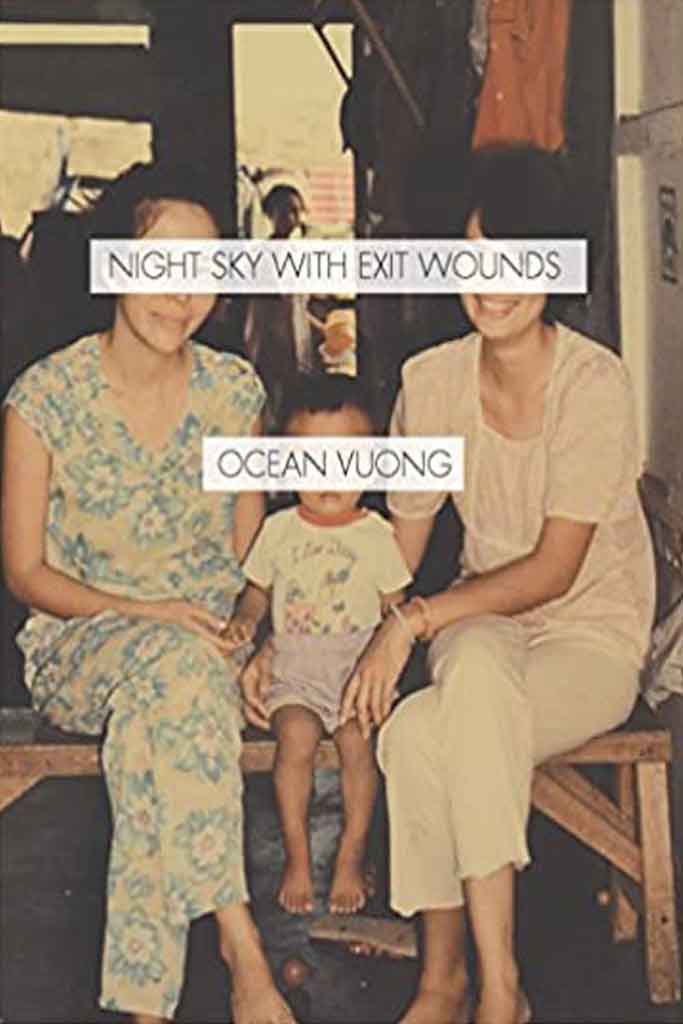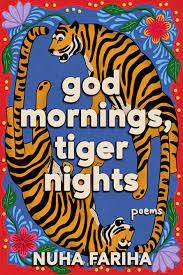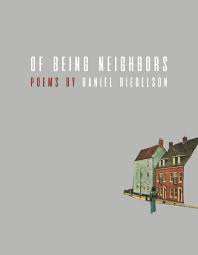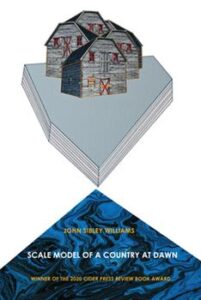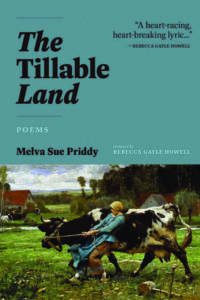Review by Jeremy Michael Reed // September 19, 2016
Copper Canyon Press, April 2016
Paperback, 70 pp. $16
Ocean Vuong’s debut collection, Night Sky with Exit Wounds, has received rave reviews from seemingly everywhere, but, beneath all of this fanfare, his poetry speaks in a quietly strong, self-questioning tone. From cover to cover, Vuong narrates the process of discovering the multiple truths of his and his family’s experiences in Vietnam and America, of his poetic and personal relationships, and of his words.
While other poets have treated these themes, it’s the multiplicity Vuong uses to shape his book that makes it deserving of not just praise but continued re-reading. His text makes space for multiple voices and languages to speak to each other even when they don’t understand each other, as is the case for his English-speaking audience as they confront Vietnamese. With this, Daniel Wenger of The New Yorker wrote of the book, “Vuong has fashioned a poetry of inclusion.” But Vuong’s is an inclusion not just of what’s represented in his narratives (immigrant life in a warring America, romantic and sexual relationships), but in the forms, voices, and languages used to build them. Vuong shows many of the forces that have influenced his voice in their fully complex realities: his parents and the violence they have suffered politically and personally, the history of his country of origin and of America, and his own experiences and languages.
Vuong’s voice has been shaped by a legacy of painful experiences, and he argues in these poems that the history of violence can be taken up as a tool to learn how to live anew with those oppressed pressing its name “to their tongues / to relearn the word live live live”. Throughout the book, relearning how to name the process of living molds the reader’s and speaker’s shifting understandings of national borders, family ties, love and intimacy, and literacy. If, as he says in “Untitled (Blue, Green, and Brown): oil on canvas: Mark Rothko: 1952,” he stands “waiting in the room / made of broken mockingbirds,” then his readers stand with him, ourselves broken, repeating our histories in tandem. Learning from his words, we not only recognize the generational trauma of the succession of wars in recent American history but also recognize our ability to deviate from the kind of life we’ve seen our parents live. Because we are broken mockingbirds, we don’t repeat the song exactly.
The way Vuong includes voices of both care and harm astounds, in part because he crafts the experience of reading for nuanced representations of pain and hope in such minutely specific ways. He creates a pattern of accumulation that builds on certain themes (language’s ability to represent experience, the relationships between generations, the ways people experience and then live with trauma, and how to draw distinctions between the past and present) and, by presenting so many competing truths to each theme, complicates his readers’ and his speaker’s understanding of them. He slowly assembles a vocabulary of images repeated until they become a set of metaphors that make meaning in multiple, contradictory ways: skies, forms of water, flowers, fires, knives, cars, and skin carry competing connotations from poem to poem. By letting those shifting symbols stand in productive tension, Vuong creates a shared language with his readers.
This shared language and the conversations it engenders are central to Vuong’s poetics as they exist in their contexts of violence, love, and the attempts to express both. As he puts it at the end of his poem “To My Father / To My Future Son,” he writes out of a desire to allow those after him to be able to “put [his body] down,” an ability that would free those future poets and readers to find a way to use the words he’s given them to understand their lives and surroundings, “to prove how the stars / were always what we knew / they were: the exit wounds / of every / misfired word.” In order to give tools to those who use the shared language of poetry after him, Vuong questions his own genuine attempts at connection alongside the misfired and misused, the violent and the harmful, creating a sometimes painful song from which, with time and patience, we can learn better how to hear and sing ourselves.
ABOUT THE REVIEWER
Jeremy Michael Reed is a PhD student in English-Creative Writing at the University of Tennessee. His poems are published or forthcoming in Red Paint Hill, Still: the Journal, Valparaiso Poetry Review, and elsewhere.


